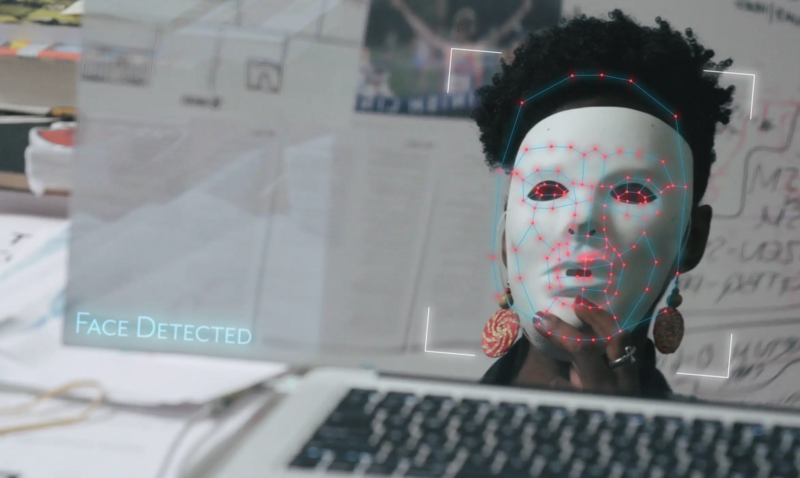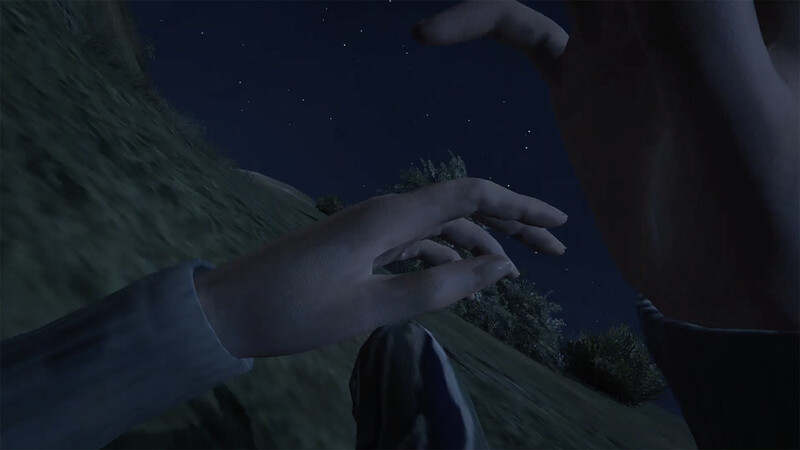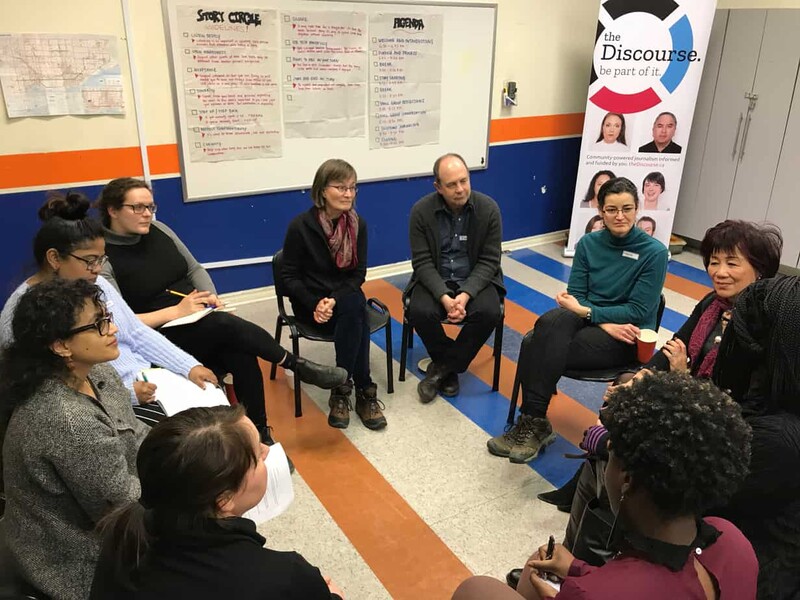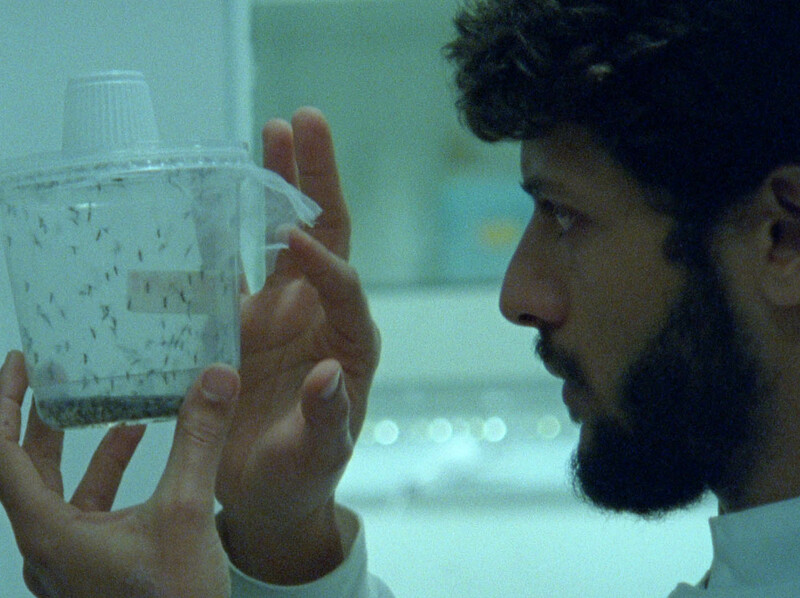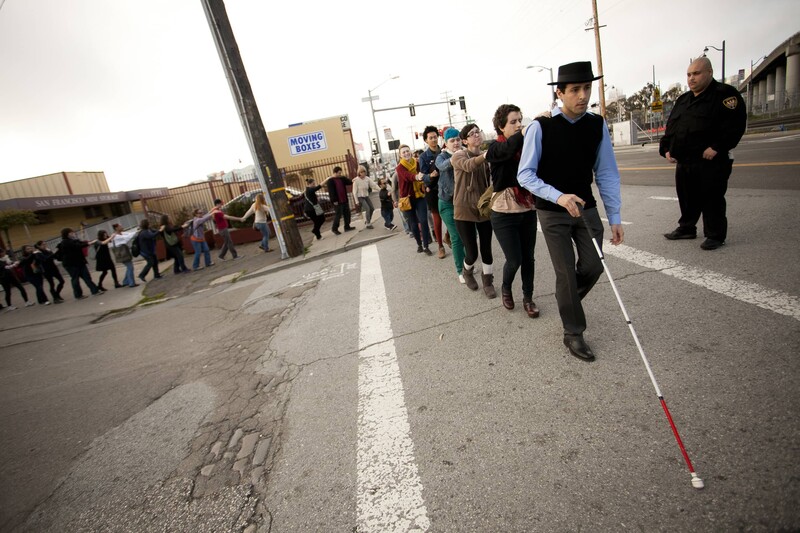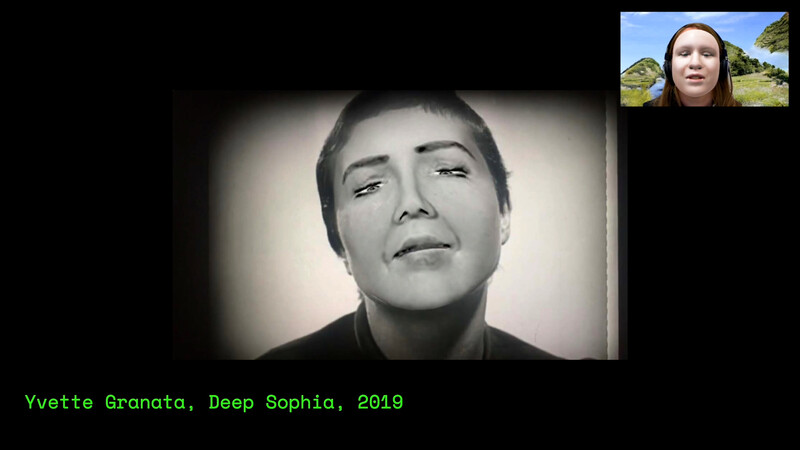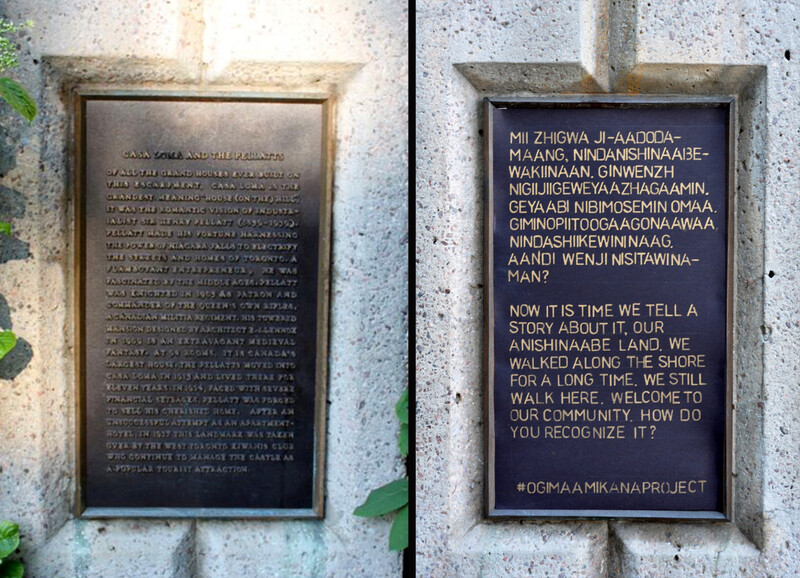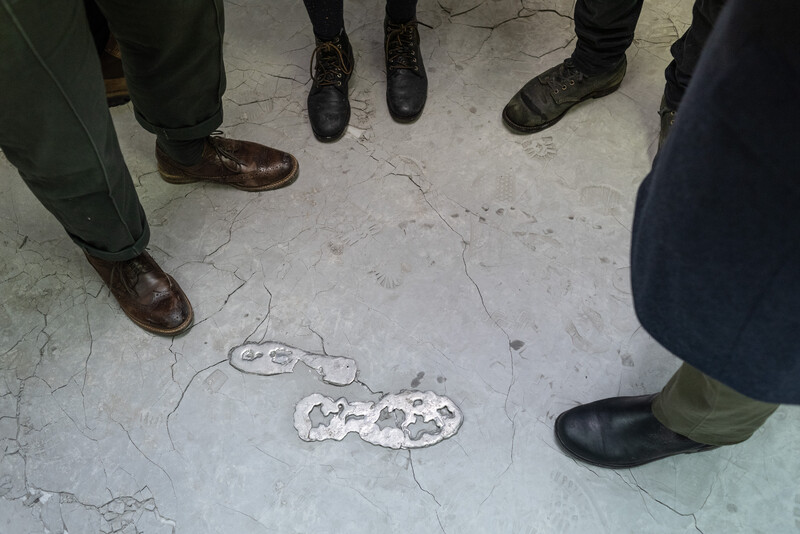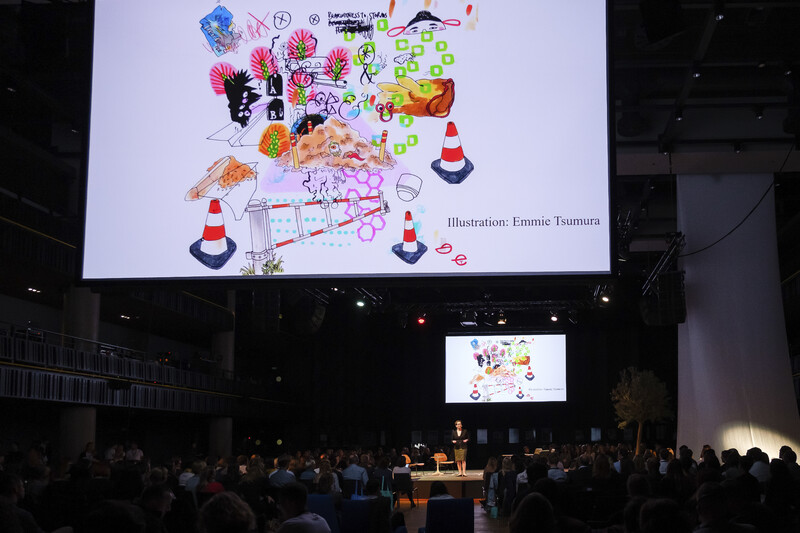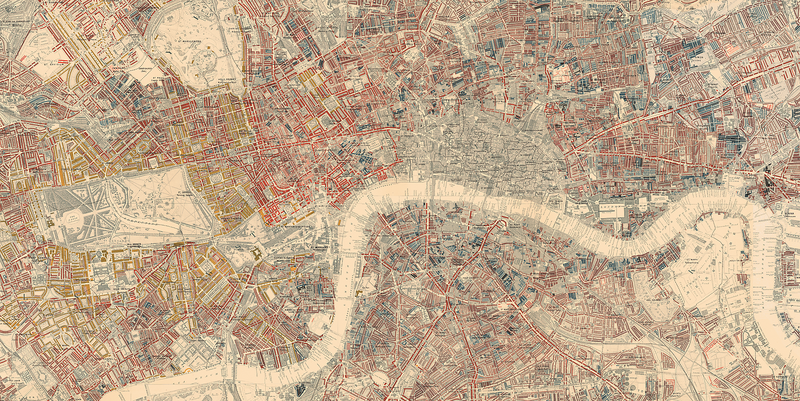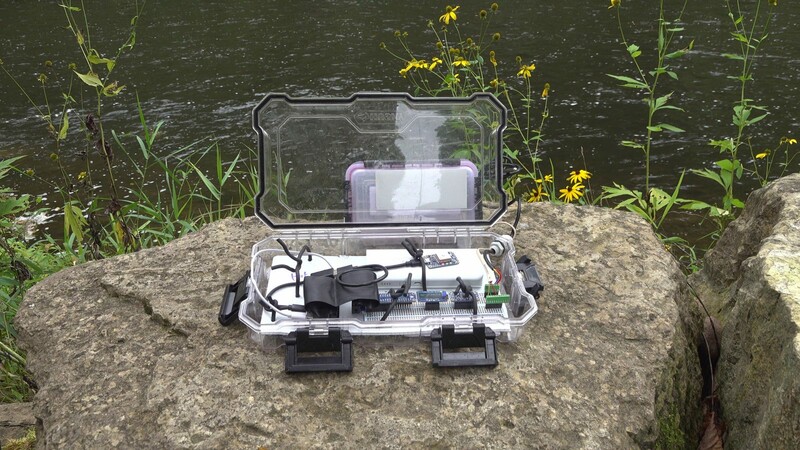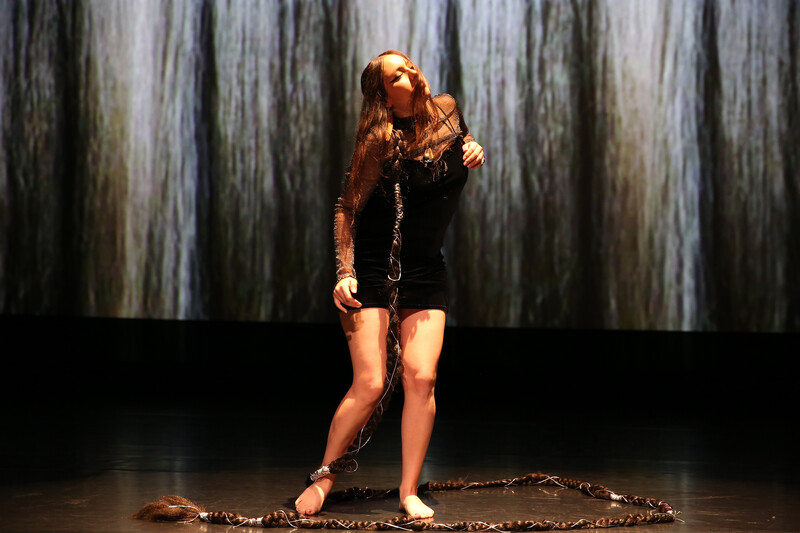Adwoa Afful is a public health researcher and writer, born and raised in Toronto. Trained as an urban planner, Adwoa’s work often explores the increasingly central role that technology is playing in community building and its implications for Black women and gender non-binary people across Toronto. Adwoa is also the founder of Black Futures Now Toronto, a grassroots initiative that works to engage Black women and non-binary people in anti-oppressive placemaking.
Kristen Bos is an Assistant Professor of Indigenous Science and Technology Studies at the University of Toronto Mississauga and the co-Director of the Indigenous-led Technoscience Research Unit, an environmental justice lab at the University of Toronto. She is an Indigenous feminist researcher trained in archaeological approaches to material culture, and an Indigenous science and technology studies (STS) researcher, who is concerned with the relationship between colonial, gendered, and environmental violence. She is urban Métis based in Toronto, but her homeland is northern Alberta where prairie transitions into boreal forest.
Meredith Broussard is an associate professor at the Arthur L. Carter Journalism Institute at New York University and the author of Artificial Unintelligence: How Computers Misunderstand the World. Her research focuses on artificial intelligence in investigative reporting, with a particular interest in using data analysis for social good. A former features editor at the Philadelphia Inquirer, she has also worked as a software developer at AT&T Bell Labs and the MIT Media Lab. Her features and essays have appeared in The Atlantic, Slate, Vox, and other outlets.
Anita Say Chan is an Associate Professor in the School of Information Sciences and the College of Media at the University of Illinois, Urbana-Champaign. At UIUC, she directs the Community Data Clinic at the National Center for Supercomputing Applications, running active partnerships with Cunningham Township, Champaign County Community Coalition, and the Champaign Country Mental Health Board. Her first book, Networking Peripheries: Technological Futures and the Myth of Digital Universalism (MIT Press, 2014), explored the competing imaginaries of global connection and information technologies in network-age Peru. She is a 2020–21 Data & Society Affiliate, specializing in decolonial, feminist data methods. Next summer, she will be a Fulbright Specialist at the Universidad Javeriana in Bogotá, advancing work on the relational infrastructures of feminist data collectives in Latin America.
Beth Coleman researches experimental digital media, and specializes in race theory, game culture, and literary studies. She is currently working on two books and has previously published Hello, Avatar: Rise of the Networked Generation, a critically acclaimed book examining the many modes of online identity and how users live on the continuum between the virtual and the real. She has also curated numerous art exhibits and media installations within North America and in Europe. Her current research investigates aspects of human narrative and digital data in the engagement of global cities, including aspects of locative media, mobile media, and smart cities.
Since the late 1970s, Sonia Corrêa has been involved in research and advocacy activities related to gender equality, health, and sexuality. Between 1992 and 2009, she was the research coordinator for sexual and reproductive health and rights at DAWN (Development Alternatives with Women for a New era), a Global South feminist network, of which she is presently a board member. Since 2002 she is a research associate at the Brazilian Interdisciplinary Association for AIDS, in Rio de Janeiro. In ABIA, with Richard Parker, she co-chairs the Sexuality Policy Watch (SPW) program, a global forum comprised of researchers and activists engaged in the analyses of global trends in sexuality related policy and politics. She has published extensively in Portuguese and English, including Population and Reproductive Rights: Feminist Perspectives from the South (Zed Books, 1994), and Sexuality, Health and Human Rights co-authored with Richard Parker and Rosalind Petchesky (Routledge, 2008).
Jasmine Rault (settler, they/she) is an Assistant Professor of Media Studies in the Department of Arts, Culture, Media (UTSC) and the Faculty of Information at the University of Toronto. Rault’s research focuses on mediations of gender, race, and sexuality in architecture and design, digital cultures and economies, arts, and social movements. This includes publications in American Quarterly; Feminist Media Studies; Scholar & Feminist Online; Interiors: Design, Architecture, Culture; Archives of American Art. Rault’s first book is Eileen Gray and the Design of Sapphic Modernity: Staying In (Ashgate/Routledge, 2011).
T.L. Cowan (settler, she/they) is an Assistant Professor of Media Studies in the Department of Arts, Culture, and Media (UTSC) and the Faculty of Information at the University of Toronto. Cowan’s research focuses on cultural and intellectual economies and networks of trans- feminist and queer (TFQ) and other minoritized digital media and performance practices. This work includes a monograph, entitled Transmedial Drag and Other Cross-Platform Cabaret Methods, nearing completion. Cowan’s recent publications can be found in the Routledge Companion to Digital Humanities & Art History, Theatre Research in Canada, American Quarterly, First Monday, and Liminalities. Cowan is also a cabaret and video artist.
Together, Jasmine Rault and T. L. Cowan write about minoritized research methods, ethics and economies, Trans- Feminist & Queer (TFQ) research cultures, and digital archives. They are co-directors of the Cabaret Commons and Digital Ethics Research Collaboratory (DREC). Rault and Cowan are currently co-authoring a book, Heavy Processing for Digital Materials (forthcoming with Punctum Books).
Heather Dorries is Anishinaabe from Winnipeg and an Assistant Professor in the Department of Geography and Planning and Centre for Indigenous Studies at the University of Toronto (St George). Her research is focused on the relationship between urban planning and settler colonialism, as well as the application of Indigenous knowledge in planning contexts.
Ellen Graham is an Applied Mathematics and Statistics major at Macalester College. She has a special interest in using data for the broader public good and making data science methods more broadly accessible. Her past work includes researching whether emergency medical services in Charlottesville, Virginia, are equitably distributing resources during the COVID-19 pandemic. She also has a passion for teaching, and has been a teaching assistant for several data-focused courses, as well as running multiple small workshops and tutorials on preparing and visualizing data.
John Kim is a professor of Media and Cultural Studies at Macalester College in St. Paul, Minnesota. A theorist and practitioner of new media, he has published widely, including a book Rupture of the Virtual (2016), journal articles, and other print publications. John has also exhibited interactive art, sculpture, video games, and software in galleries and festivals around the world, including MassMOCA, Massachusetts; Dia Center for the Arts, New York City; the Walker Art Center, Minneapolis, Minnesota; and Northern Spark arts festival, St. Paul. With his art design group, Futures North, John has created work at the intersection of environmental representation and data spatialization. Futures North recently created a public art sculpture about the anthropogenic history of the Mississippi River. John was involved in the Mississippi. An Anthropocene River project (2018–2019) and was fortunate to have the opportunity to canoe from the headwaters to the Gulf of Mexico conducting research.
Rick Harp is host and producer of MEDIA INDIGENA, an Indigenous current affairs podcast launched in the spring of 2016. Rick’s two decades of broadcasting and communications experience include on-air roles with the Aboriginal Peoples Television Network (APTN) and the Canadian Broadcasting Corporation (CBC). A former Artistic Director with the Winnipeg Aboriginal Film Festival, Rick is part of the Peter Ballantyne Cree Nation in northern Saskatchewan.
Filmmaker Shalini Kantayya premiered Coded Bias at the 2020 Sundance Film Festival. She directed for the National Geographic television series Breakthrough, which was broadcast globally in June 2017. Her debut documentary, Catching the Sun, premiered at the LA Film Festival and was named a New York Times "Critics’ Pick." Catching the Sun was released globally on Netflix on Earth Day 2016, with executive producer Leonardo DiCaprio, and was nominated for the Environmental Media Association Award for Best Documentary. Kantayya is a TED Fellow, a William J. Fulbright Scholar, and an Associate of the UC Berkeley Graduate School of Journalism.
Nora N. Khan is a writer of criticism. She is on the faculty of Rhode Island School of Design, Digital + Media, teaching critical theory, artistic research, writing for artists and designers, and technological criticism. She has two short books: Seeing, Naming, Knowing (The Brooklyn Rail, 2019), on machine vision, and with Steven Warwick, Fear Indexing the X-Files (Primary Information, 2017), on fan forums and conspiracy theories online. Forthcoming this year is The Artificial and the Real, through Art Metropole. She is currently an editor of The Force of Art along with Carin Kuoni and Serubiri Moses, and is a long-time editor at Rhizome. She publishes in Art in America, Flash Art, Mousse, 4Columns, Brooklyn Rail, Rhizome, California Sunday, Spike Art, The Village Voice, and Glass Bead. She has written commissioned essays for exhibitions at Serpentine Galleries, Chisenhale, the Venice Biennale, Centre Pompidou, Swiss Institute, and Kunstverein in Hamburg. This year, as The Shed’s first guest curator, she organized the exhibition Manual Override. Her research and writing practice extends to a large range of artistic collaborations, which include librettos, performances, exhibition essays, scripts, and a tiny house.
Kite is an Oglála Lakȟóta performance artist, visual artist, and composer raised in Southern California, with a BFA from CalArts in music composition, an MFA from Bard College’s Milton Avery Graduate School, and is a PhD candidate at Concordia University. Kite’s scholarship and practice investigate contemporary Lakota ontologies through research-creation, computational media, and performance. Recently, Kite has been developing a body interface for movement performances, carbon fibre sculptures, immersive video and sound installations, as well as co-running the experimental electronic imprint Unheard Records. Kite has also published in several journals and magazines, including in The Journal of Design and Science (MIT Press), where the award-winning article, “Making Kin with Machines,” co-authored with Jason Lewis, Noelani Arista, and Archer Pechawis, was featured. Currently, she is a 2019 Pierre Elliott Trudeau Foundation Scholar, a 2020 Tulsa Artist Fellow, and a 2020 Women at Sundance x Adobe Fellow.
Sean Lee is an artist and curator exploring the notion of disability art and accessibility as the last avant-garde. His methodology reframes embodied difference as a means to resist traditional aesthetic idealities. Orienting toward a “crip horizon,” Sean’s practice gestures towards the transformative possibilities of a world that desires the way disability can disrupt. Sean holds a BA in Arts Management and Studio from the University of Toronto, Scarborough, and is currently the Director of Programming at Tangled Art + Disability. In addition to his position at Tangled, Sean is an independent curator, lecturer, and advisor, adding his insights and perspectives to conversations surrounding Disability Arts across Canada and the United States. Sean currently sits on the board of CARFAC Ontario, Creative Users Projects, and is a member of the Ontario Art Council’s Deaf and Disability Advisory Committee, and Toronto Art Council's Visual and Media Arts Committee.
Anita Li is a globally respected media strategist, commentator and consultant. She is also a journalism professor in the GTA and at the City University of New York. Anita has a decade of full-time experience as a multi-platform journalist in three markets: Toronto, New York City, and Ottawa. She started her career as a reporter and editor at Canadian legacy publications, including The Globe and Mail and CBC. After that, she worked in management-level roles at American digital media outlets, such as Complex and Mashable. Most recently, Anita was director of communities at The Discourse, a disruptive new player in the Canadian media scene that fills in gaps in news coverage for underserved communities. Anita is an expert in community-driven journalism, audience engagement, audience-pay business models, newsroom diversity, media ethics and journalism innovation. She is a member of the 2020–21 Online News Association board of directors, and co-founded Canadian Journalists of Colour, a rapidly growing network of racialized media-makers in Canada, in 2018.
Carol Linnitt is a journalist, editor, illustrator and co-founder of The Narwhal. Carol has been reporting on energy and environmental politics for the last decade for outlets including VICE Canada, The National Observer, Academic Matters, and The Tyee. Carol began her career writing and conducting interviews for The Canada Expedition, a non-governmental sustainability initiative, while working in dispute resolution with communities affected by resource scarcity. Carol has a Master's in English Literature from York University where she studied political theory, natural resource conflicts, and Aboriginal rights. She also has a Master's in Philosophy in phenomenology and environmental ethics, and is currently a doctoral candidate at the University of Victoria in the English and Cultural, Social and Political Thought programs. When she’s not on her computer, you can usually find Carol in some ocean, somewhere, free-diving or surfing.
Esery Mondesir is a Haitian-born video artist and filmmaker. He was a high school teacher and a labour organizer before receiving an MFA in cinema production from York University (Toronto) in 2017. Mondesir’s work draws from personal and collective memory, official archives and vernacular records, and the everyday to generate a reading of our society from its margins. His films, which explore migration and exile as sites of identity-formation as well as cultural resistance, have been exhibited in Canada and internationally. Mondesir currently lives in Toronto and teaches at OCAD University.
Kristine Neglia is the new Manager of OCAP® & Information Governance with the First Nations Information Governance Centre (FNIGC). Responsible for education and training activities, Kristine supports First Nations, Indigenous and non-Indigenous organizations increase their knowledge and skills related to OCAP®, Information Governance, and First Nations Data Sovereignty. Prior to FNIGC, Kristine was the Education Specialist for the First Nations Health Managers Association, facilitating the intensive Certified First Nation Health Managers curriculum to health management professionals across Canada. A member of the Curve Lake First Nation in Ontario, Kristine has worked for Indigenous organizations at the local, provincial, and national levels, and is always excited to speak about the First Nations Principles of OCAP®.
Pedro Neves Marques is a visual artist, filmmaker, and writer. They have had solo exhibitions at Castello di Rivoli, High Line, Pérez Art Museum of Miami, e-flux, Gasworks, and Museu Colecção Berardo, and have shown in screenings and group shows at Tate Modern Film, Serpentine Cinema, Kadist Foundation, Fondación Botín, SculptureCenter, Matadero, VAC Foundation, Guangdong Times Museum, and in film festivals like the Toronto International Film Festival, New York Film Festival, Go Shorts, London Short Film Festival, Short Waves, IndieLisboa, among many others. They have published widely between art, anthropology, and ecology, as editor of the anthology The Forest and The School (Archive Books, 2015) and e-flux journal’s Supercommunity (2015), and as author of two short story collections, most recently Morrer na América (2017), and a poetry collection, Sex as Care and Other Viral Poems (2020). They were awarded the Present Future Art Prize at Artissima (2018) and have been shortlisted for the Pinchuk Future Generation Art Prize 2021. Forthcoming solo shows include at 1646, CA2M, and CaixaFórum, Liverpool Biennial, and Gwangju Biennale. Born in Lisbon, Portugal, they have lived in London, São Paulo, and New York.
Ogimaa Mikana Project is an artist collective founded by Susan Blight (Anishinaabe, Couchiching) and Hayden King (Anishinaabe, Gchi’mnissing) in January 2013. Through public art, site-specific intervention, and social practice, they assert Anishinaabe self-determination on the land and in the public sphere.
Carmen Papalia is a social practice artist who uses organizing strategies and improvisation to address his access to public space, the art institution, and visual culture. His work, which takes forms ranging from collaborative performance to public intervention, is a response to the barriers and biases of the medical model of disability. As a convener, he establishes welcoming spaces where those from historically marginalized groups realize their desires for participation through processes rooted in activism, performance, and institutional critique. Papalia’s work has been featured at the Solomon R. Guggenheim Museum, Tate Liverpool, Grand Central Art Center, Banff Centre for Arts and Creativity, and Gallery Gachet, among others.
Mike Pepi is a critic of art and technology. He is based in New York.
Karyn Pugliese, also known as Pabàmàdiz, is best known for her work as a Parliament Hill reporter and as the Executive Director of News and Current Affairs at APTN (Aboriginal Peoples Television Network), where she ran the news department for seven years. She joined Ryerson's faculty in the Spring of 2020 while completing a Nieman Fellowship at Harvard University. Karyn has worked in daily news and long-form investigations at a variety of outlets including ichannel, VisionTV, CBC, and CTV. Karyn is a past president of the Canadian Association of Journalists (CAJ), and currently a co-chair of the advocacy committee. She is a board member of Canadian Journalists for Free Expression, and a Journalists for Human Rights Ambassador. Her journalism has been recognized by the CAJ, Canadian Screen Awards, Native American Journalists Association, and Public Policy Forum. Karyn is a citizen of the Pikwàkanagàn First Nation in Ontario, and is of mixed Algonquin and Italian descent. When she is not engaged in acts of journalism, you'll find her paddling a canoe, shooting photos, and eating frybread.
Since birth, Nicky Recollet has had a strong connection to the land known as Wanabitibing, alongside the traditional territories of the Robinson Huron Treaty (1850). Having such strong roots with Anishinabek culture, Nicky places the values that her ancestors passed down to her with the utmost respect, and appreciates the roles and responsibilities of her spirit. With over ten years expertise in GIS and database management, Nicky applies strong skills with geospatial analysis to projects and activities in Anishinabek territory. Nicky has served in a variety of roles over the past fifteen years, including as acting GIS Analyst with the Robinson Huron Waawiindaamaagewin, and as developer of Crane’s Atlas, a sole-proprietorship First Nations business. Recollet holds a degree in Biology from Algoma University, a graduate certificate from Sault College, a diploma from Cambrian College, and is undertaking a Masters in GIS Applications. Nicky is keen to contribute her knowledge and skills to grow Anishinabek communities by building relationships and connections for the protection of Mother Earth and all our relations.
Tiara Roxanne (PhD) is an Indigenous cyberfeminist, scholar, and artist based in Berlin. Her research and artistic practice investigates the encounter between the Indigenous Body and AI. More particularly, she explores the colonial structure embedded within artificial intelligence learning systems in her writing, and in performance art using textiles. Currently her work is mediated through the colour red. She received the Zora Neale Hurston Award from Naropa University in 2013, where she completed an MFA. Under the supervision of Catherine Malabou, Tiara completed her dissertation, "Recovering Indigeneity: Territorial Dehiscence and Digital Immanence" in June 2019. Tiara has presented her work at Images Festival (Toronto), Squeaky Wheel Film & Media Art Center (NY), Trinity Square Video (Toronto), SOAS (London), SLU (Madrid), Transmediale (Berlin), Duke University (NC), re:publica (Berlin), Tech Open Air (Berlin), AMOQA (Athens), among others. She is currently a researcher at DeZIM-Institut.
Caroline Sinders is a machine learning design researcher and artist. She has recently been examining the intersections of natural language processing, artificial intelligence, abuse, online harassment, and politics in digital, conversational spaces. Sinders is the founder of Convocation Design + Research, an agency focusing on the intersections of machine learning, user research, designing for public good, and solving difficult communication problems. As a designer and researcher, she has worked with Amnesty International, Intel, IBM Watson, the Wikimedia Foundation, and others. Currently, she is a fellow with Ars Electronica AI Lab with the Edinburgh Futures Institute, and a visiting fellow with the Weizenbaum Institute. Sinders has held fellowships with the Harvard Kennedy School, Mozilla Foundation, Pioneer Works, Yerba Buena Center for the Arts, Eyebeam, STUDIO for Creative Inquiry, and International Center of Photography. Her work has been featured in the Tate Exchange at Tate Modern, Victoria and Albert Museum, MoMA PS1, the Houston Center for Contemporary Craft, Slate, Quartz, and the Channels Festival, among others. Sinders holds a master’s from New York University's Interactive Telecommunications Program.
Brett Story is a filmmaker and writer based in Toronto. Her films have screened internationally at festivals such as CPH-DOX, the Viennale, SXSW, True/False, Hot Docs, and Sheffield Doc/Fest. Her feature films include 2016’s award-winning The Prison in Twelve Landscapes and 2019’s The Hottest August. Brett is the author of the book Prison Land (2019) and co-editor of the forthcoming volume, Digital Life in the Global City. She has held fellowships from the Guggenheim Foundation and the Sundance Documentary Institute, and was named one of Variety’s 10 Documentary Filmmakers to Watch in 2019. Brett holds a PhD in geography from the University of Toronto and is currently an Assistant Professor in the School of Image Arts at Ryerson University.
Lewis Raven Wallace is an award-winning independent journalist based in Durham, North Carolina. He’s a co-founder and co-director of Press On southern movement journalism collective, the author of The View from Somewhere: Undoing the Myth of Journalistic Objectivity, and the host of The View from Somewhere podcast. He previously worked in public radio, and is a long-time activist engaged in prison abolition, racial justice, and queer and trans liberation. He is a frequent public speaker and trainer on topics including legacies of resistance in journalism and transforming journalism for the 21st century. He is white and transgender, and was born and raised in the Midwest with deep roots in the South.
Bianca Wylie is an open government advocate with a dual background in technology and public engagement. Her main areas of interest are democracy and public technology.
Emily Fitzpatrick is a curator and arts administrator who holds a master’s degree in Curatorial Studies from the John H. Daniels Faculty of Architecture, Landscape, and Design at the University of Toronto. Recent curatorial work involves temporary public art projects rooted in social practice, and feminist perspectives on digital sustainability and survival. She has extensive experience working within Toronto’s artist-run centres and public institutions including Images Festival, the Art Museum at the University of Toronto, Gendai Gallery, and Art Metropole. She has contributed to such publications as Canadian Art, C Magazine, Peripheral Review, and CAROUSEL. Emily is currently the Artistic Director at Trinity Square Video and a member of the curatorial collective Aisle 4.
Raised in Mississauga, Cassandra Gemmell studied Anthropology and Art History at the University of Toronto, where she first became interested in situating media within a legacy of inherited visual and technical conventions, while acknowledging its agency in shaping the cultural landscape. In current research as a graduate student studying Contemporary Art, Design and New Media at OCAD University, Gemmell explores the historical precedents of new media, such as Artificial Intelligence, with focus on technology, myth, and the intersection of aesthetics and science. Gemmell’s research approaches the body as a text, and as a site of social mapping where myths of technology and science, narratives of citizenship and subjectivity, and cultural conceptions of health, deviance, and disease are formed.
Kat Germain is a trained Audio Description and Visual Translator (VT) with over ten years of experience. She is invested in understanding and developing ethics guidelines when describing racialized, Deaf, and disability-identified communities, and other traditionally marginalised groups. Kat’s life’s advocacy work led her to learn American Sign Language, and while once conversant, has only retained a basic understanding through immersion in a community who has little interaction with Signed Languages. However, because of Kat’s respect for the Deaf culture and basic understanding of the language, she has been asked to describe many signed works. Kat continues to perseverate on how to honour the Deaf community’s fight for cultural and linguistic autonomy while also bringing Deaf culture to the Blind community in meaningful ways. Kat has won several writing and producing grants for film. Her film and performance work has toured internationally, and her VT work has taken her around North America.
Parker Kay is a multidisciplinary artist and writer currently working in Toronto. Kay’s practice implements experiential research and qualitative mapping to explore how place-making permeates our lives and marks our landscapes. As an avid urban explorer, Kay has led walking and cycling tours with the Jane’s Walk Festival and the Ontario Association of Architects (OAA); he also has worked on projects with Myseum of Toronto and the Vancouver Biennale. Kay’s writing has been published in C Magazine, SITE, Cornelia, Peripheral Review; and he has exhibited at Modern Fuel (2020), Sibling (2019), Motel Brooklyn (2017), the Toronto Reference Library (2017), and TOWARDS (2016). In order to pursue more curatorial projects, Kay founded Pumice Raft, a not-for-profit artist-initiated space in Toronto. Kay is also currently a researcher and collections manager at The Archive of Modern Conflict and sits on the board of directors at Art Metropole.
Olivia Klevorn is a queer, mixed-race Black emerging artist living in Toronto. She graduated from Yale University in 2017 with a bachelor's in Cultural Anthropology and received a Master’s of Visual Anthropology from the University of Oxford in 2019, with a dissertation on digital labour relations on Instagram. Olivia has trained as a dancer, writer, and actor, and has been mentored by the poet Claudia Rankine. She conducts research for Hans Ulrich Obrist, director of London’s Serpentine Gallery. She regularly performed as part of author Dean Atta’s Black Flamingo Cabaret, and was frequently a featured performer at London’s Royal Vauxhall Tavern. Recently, she has been published in the Blackwood Gallery’s SDUK 07: TILTING (2), Koffler.digital’s online exhibition A Matter of Taste, and Carnation Zine’s upcoming issue. She was a runner-up for the C Magazine New Critics Award.
Matthew Jacob Ledwidge (Toronto, 1994) is an artist based in Cambridge, MA, working in an interdisciplinary mode between forms of academic research, artistic inquiry, and media production. He holds a BFA from Cooper Union, New York City, and a Master of Science in Art, Culture, and Technology from MIT. He was recently an MIT Transmedia Storytelling Initiative fellow, and artist-in-residence at SOMA in Mexico City. His work is built around particular geographic and historical sites and uses structural intervention, installation, image, and sound to engage with the conditions of knowledge and attention in the built environment. Past projects have focused on the transmission of historical information at the site of a particular work, investigating conditions of obfuscation, conventions of representation, and the psychosomatic implications of particular disclosures. Recent exhibitions and collaborative projects have been presented at the Ecole Polytechnique, Paris; Sakiya, Ramallah; Gallery Elektrozavod, Moscow; The Shed, New York; GGG Foundation, Basel; Festung Hohensalzburg, Salzburg. He has also been involved in curatorial and educational projects at the Center for Advanced Visual Studies Archive at MIT, The Herb Lubalin Study Center, and the Center for Urban Pedagogy.
Jordan Loeppky-Kolesnik is an artist from Montréal living in Los Angeles. They work in video, sculpture, and installation, creating experiences that tell stories about ecological survival, the queer body, personal relationships, and sense of place. Explorations of non-binary gender and the body arise with questions around architecture, social dynamics, nature, and place. If you were to file their work in a library search engine, effective keywords would include: speculative fiction, the occult, ecology, learning through experience, sexuality, personal relationships, new forms of society, chaos, desire, mental health, public health, spiritual architecture, land art, climate change, folk & craft traditions, paganism, architecture, ghosts, out-of-body-experience, feelings, post-humanism, anti-capitalism, trans-humanism, cross-species embodiment, fantasy.
Estraven Lupino-Smith is a queer and trans non-binary artist, born in Dish with One Spoon Territory to an Italian and Scottish family. Their work is informed by their curiosity and critical engagements with human interactions in varied environments: natural, cultural, and constructed. Their interdisciplinary practice involves sound, sculpture, video, and other various forms of installation in partnership with research and writing. They are specifically interested in investigating ecologies, conceptions of the wild, race and whiteness, gender, social and cultural normativities, ancestral stories and skills, and movements for justice and self-determination. Over the course of their training they have refined their understanding of the spatial dynamics of movement building, critical natural histories, and the ideas of imagined geographies. Being an artist and a geographer are two parts of their broader practice engaged with political ecology, queer theory, and creative production, firmly rooted in decolonial methodologies.
Matt Nish-Lapidus is an artist and musician based in Tkaronto/Toronto. Matt’s varied practice probes the myth that computers should be useful rather than beautiful through examining contemporary technoculture, its histories, and its impacts on society, people, and his own life. His work results in diverse outputs including publications, recordings, installations, performances, software, and objects. Matt has performed and exhibited locally and internationally including MOCA (Toronto), The Power Plant (Toronto), INDEX Biennial (Braga), ACUD Macht Neu (Berlin), Electric Eclectics (Meaford), InterAccess (Toronto), ZKM (Karlsruhe), and more including many DIY community spaces. You can find Matt online and away-from-keyboard under various aliases and collaborations including emenel, New Tendencies, and
Jennifer Su is an emerging artist and researcher who works primarily with photography and film. She draws inspiration from the suburban neighbourhoods she was raised in and the special boredom they contain. Her first short film, 36 Questions, won the WIFT-T and DGC-Ontario Award at the Reel Asian International Film Festival in 2016. She went on to participate in the DOC Institute’s New Visions Incubator in 2017 and made her second short film, Wave Hands Like Clouds, with the Festival of Recorded Movement in 2018. Currently she is a master’s student in Sociocultural Anthropology at the University of Toronto.
Polina Teif (1989) is a Belarus-born artist and filmmaker based in Toronto. She received her BFA from the University of Toronto with emphasis on Visual Studies and Semiotics and completed an MFA in Documentary Film Production at York University. In 2019 she attended the Doc Institute Breakthrough Program and was awarded the Hot Docs Pitch prize and the 2019 Planet in Focus Green Pitch Award. In 2019, she participated in the Cannes Doc Corner Canadian Showcase, and in 2020 she attended the Berlinale EMF DocSalon Toolbox Program and the 2020 Hot Docs Accelerator Program. Her work has been shown at the Istanbul Design Biennial, Trinity Square Video, Gallery Stratford, Art Metropole, Hart House, Nuit Blanche, and Idea Exchange; and published in DER GRIEF, Aesthetica Magazine, Hart House Review, Magenta, Collective Terrain, LUMA Quarterly, and ICON Magazine.
Pegah Vaezi is a transdisciplinary designer and curator. Pegah completed her Master’s of Visual Studies in Curatorial Studies from the University of Toronto. Awarded the best symposium of the year by NOW magazine in 2019, her thesis, “What do we mean when we say content moderation: Digital Censorship, Surveillance and Creative Workers,” explored ramifications of content moderation in the digital space, with a focus on its implications for creative workers. She currently runs Sprillow—a design and development studio focused on co-creating systems change initiatives—with her partner Connor Turland. Born in Portland, Oregon and raised in Tehran, Iran, Vaezi studied Sculpture and Industrial Design at the University of Tehran, and received her BFA from Virginia Commonwealth University in Sculpture and Extended Media.




